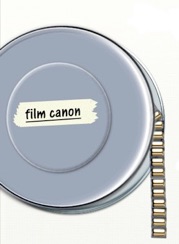
“Now that I’ve met you, would you object to never seeing me again?”
Melora Walters, Magnolia (1999)
by Jason Cox
Recent Hollywood lore must always be taken with a grain of salt, but in the annals of its shaky history there is a story that goes a little like this: while dining in a Los Angeles restaurant, Paul Thomas Anderson meets Francis Ford Coppola for the first time. About him Anderson had the glow of rave reviews for his second full length feature Boogie Nights. Coupled with artistic success was success at the box office for the film, and Anderson was a hot commodity around Hollywood. Under these auspices, Coppola told the young director he would never have as much freedom as he did at that moment, that for his next project he should swing for the fences.
Magnolia (1999) is what came next, between Boogie Nights and Punch Drunk Love for the director and eight years before the film he’s currently most know for, 2007‘s There Will Be Blood. What grabs you about a film like Magnolia is its audacity. Anderson uses the template from Robert Altman’s Short Cuts (1993) as a springboard to make a much deeper, darker, and ultimately, a better film.
Like Short Cuts, Anderson uses an ensemble mega-cast that interweaves within competing storylines. The plot touches upon adultery, cancer, incest, there’s a dead dog, lost innocence, and a million or so dead frogs (you read that right). It is three plus hours of overbearing and cumbersome subject matter (helped out by a captivating prologue and epilogue of a narrator’s telling of historical coincidences), and it is filmed in a sublime and transcendent way.
There’s hardly a lackluster performance to be found in the ensemble cast. Melanie Walters particularly stands out, as the coked out daughter of game show host Jimmy Gator. Julianne Moore does exceptional work with a character in much the same state of mind, as does Tom Cruise in a parody of himself long before the days of Tropic Thunder’s Lex Grossman.
“Magnolia is, for better or worse, the best film I will ever make.”
Paul Thomas Anderson
I call Magnolia the last film of the 20th century and the first of the 21st Century. It was released for public viewing in late December of 1999 in New York and Los Angeles, just in time to be counted and in the running for Oscar season. Many films of that illustrious year are noteworthy for the same reason, Being John Malkovich, Three Kings, American Beauty, and Boys Don’t Cry along with the subject film here broke new ground and paved the way for truly watershed films, the exceptional exceptions in American cinema we have seen in its wake.
Films of this decade have been more realistic, have strayed farther from genre, have been more challenging for the viewer. Our most talented directors weave plotlines and themes, packed in with asides and interludes; a lot of them spray the celluloid canvas like a filmmaker version of Jackson Pollock. Some of the results have been no less groundbreaking. Magnolia is one of the hallmark and foremost films of this period and help start this positive trend.
Magnolia (1999)


